SEMICONDUCTOR INDUSTRY
입력 2019.04.29 (15:08)
수정 2019.04.29 (16:45)
읽어주기 기능은 크롬기반의
브라우저에서만 사용하실 수 있습니다.
[Anchor Lead]
Samsung Electronics is expected to post a drop in its operating profit and to be ousted by the U.S.' Intel from the top spot in the first quarter of this year. The government will invest one trillion won in the non-memory business, as part of efforts to boost the competitiveness of the nation's semiconductor industry.
[Pkg]
Non-memory semiconductor chips. The crucial part in all electronics products, from TVs to rice cookers. It's also an essential component for self-driving cars and the Internet of Things technology. Non-memory chips account for 70 percent of the entire semiconductor market. However, South Korea has mainly focused its investment on the memory sector. The government plans to invest one trillion won in the non-memory sector over the next decade as part of efforts to help it gain a competitive edge. Samsung Electronics already announced it will inject around 133 trillion won in the non-memory business by 2030.
[Soundbite] KIM DONG-WON(KB SECURITIES) : "The investment will produce effects like expanding the nation's semiconductor industry and fostering the non-memory sector through a strategy to develop superb DRAM and NAND flash technologies."
In the first quarter, the nation's leading chipmakers, Samsung and SK Hynix have seen their operating profits shrink more than 60 percent on-year. With a memory business boom over, Samsung is likely to be dethroned by Intel, when it comes to operating profit. The American rival has been focused on the non-memory business. Unlike memory chips, which are greatly affected by market situations, non-memory semiconductors guarantee chipmakers stable earnings with little price fluctuations. Semiconductors accounted for 20 percent of the nation's entire exports last year. With predictions about a prolonged slump in the semiconductor market, it is now imperative the nation move away from its memory-focused strategy and diversify.
Samsung Electronics is expected to post a drop in its operating profit and to be ousted by the U.S.' Intel from the top spot in the first quarter of this year. The government will invest one trillion won in the non-memory business, as part of efforts to boost the competitiveness of the nation's semiconductor industry.
[Pkg]
Non-memory semiconductor chips. The crucial part in all electronics products, from TVs to rice cookers. It's also an essential component for self-driving cars and the Internet of Things technology. Non-memory chips account for 70 percent of the entire semiconductor market. However, South Korea has mainly focused its investment on the memory sector. The government plans to invest one trillion won in the non-memory sector over the next decade as part of efforts to help it gain a competitive edge. Samsung Electronics already announced it will inject around 133 trillion won in the non-memory business by 2030.
[Soundbite] KIM DONG-WON(KB SECURITIES) : "The investment will produce effects like expanding the nation's semiconductor industry and fostering the non-memory sector through a strategy to develop superb DRAM and NAND flash technologies."
In the first quarter, the nation's leading chipmakers, Samsung and SK Hynix have seen their operating profits shrink more than 60 percent on-year. With a memory business boom over, Samsung is likely to be dethroned by Intel, when it comes to operating profit. The American rival has been focused on the non-memory business. Unlike memory chips, which are greatly affected by market situations, non-memory semiconductors guarantee chipmakers stable earnings with little price fluctuations. Semiconductors accounted for 20 percent of the nation's entire exports last year. With predictions about a prolonged slump in the semiconductor market, it is now imperative the nation move away from its memory-focused strategy and diversify.
■ 제보하기
▷ 카카오톡 : 'KBS제보' 검색, 채널 추가
▷ 전화 : 02-781-1234, 4444
▷ 이메일 : kbs1234@kbs.co.kr
▷ 유튜브, 네이버, 카카오에서도 KBS뉴스를 구독해주세요!
- SEMICONDUCTOR INDUSTRY
-
- 입력 2019-04-29 15:13:08
- 수정2019-04-29 16:45:54
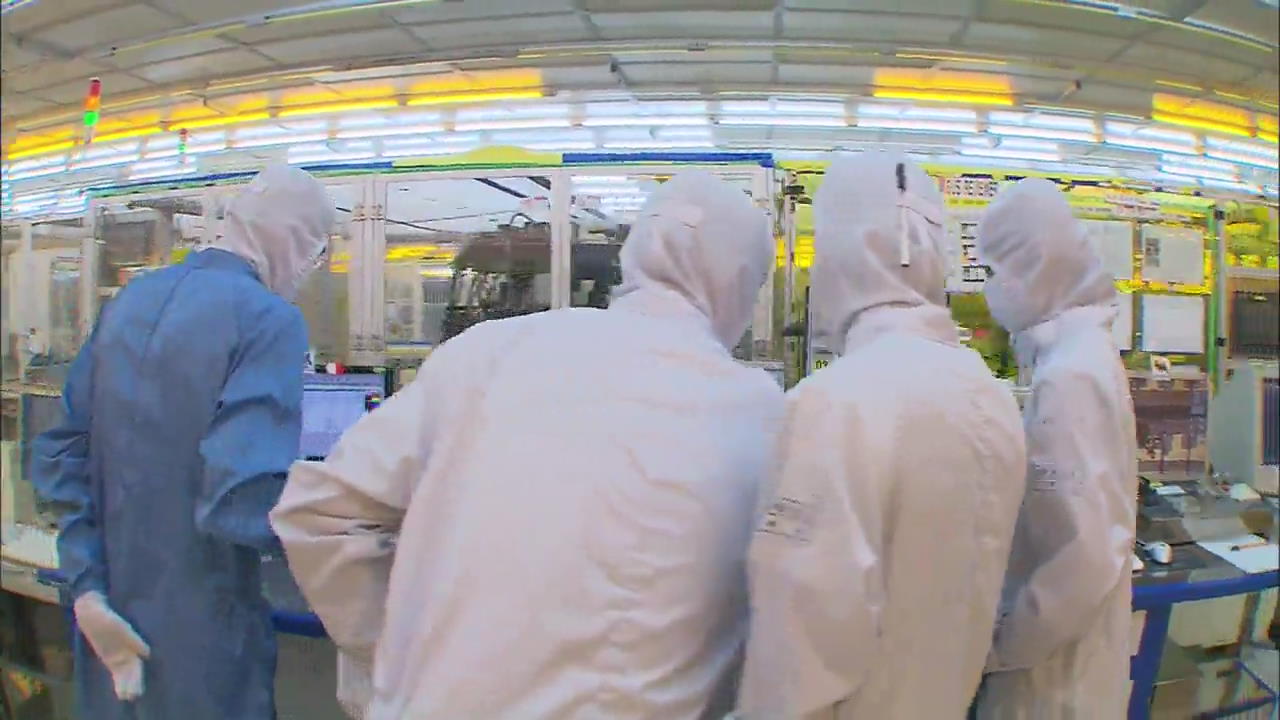
[Anchor Lead]
Samsung Electronics is expected to post a drop in its operating profit and to be ousted by the U.S.' Intel from the top spot in the first quarter of this year. The government will invest one trillion won in the non-memory business, as part of efforts to boost the competitiveness of the nation's semiconductor industry.
[Pkg]
Non-memory semiconductor chips. The crucial part in all electronics products, from TVs to rice cookers. It's also an essential component for self-driving cars and the Internet of Things technology. Non-memory chips account for 70 percent of the entire semiconductor market. However, South Korea has mainly focused its investment on the memory sector. The government plans to invest one trillion won in the non-memory sector over the next decade as part of efforts to help it gain a competitive edge. Samsung Electronics already announced it will inject around 133 trillion won in the non-memory business by 2030.
[Soundbite] KIM DONG-WON(KB SECURITIES) : "The investment will produce effects like expanding the nation's semiconductor industry and fostering the non-memory sector through a strategy to develop superb DRAM and NAND flash technologies."
In the first quarter, the nation's leading chipmakers, Samsung and SK Hynix have seen their operating profits shrink more than 60 percent on-year. With a memory business boom over, Samsung is likely to be dethroned by Intel, when it comes to operating profit. The American rival has been focused on the non-memory business. Unlike memory chips, which are greatly affected by market situations, non-memory semiconductors guarantee chipmakers stable earnings with little price fluctuations. Semiconductors accounted for 20 percent of the nation's entire exports last year. With predictions about a prolonged slump in the semiconductor market, it is now imperative the nation move away from its memory-focused strategy and diversify.
Samsung Electronics is expected to post a drop in its operating profit and to be ousted by the U.S.' Intel from the top spot in the first quarter of this year. The government will invest one trillion won in the non-memory business, as part of efforts to boost the competitiveness of the nation's semiconductor industry.
[Pkg]
Non-memory semiconductor chips. The crucial part in all electronics products, from TVs to rice cookers. It's also an essential component for self-driving cars and the Internet of Things technology. Non-memory chips account for 70 percent of the entire semiconductor market. However, South Korea has mainly focused its investment on the memory sector. The government plans to invest one trillion won in the non-memory sector over the next decade as part of efforts to help it gain a competitive edge. Samsung Electronics already announced it will inject around 133 trillion won in the non-memory business by 2030.
[Soundbite] KIM DONG-WON(KB SECURITIES) : "The investment will produce effects like expanding the nation's semiconductor industry and fostering the non-memory sector through a strategy to develop superb DRAM and NAND flash technologies."
In the first quarter, the nation's leading chipmakers, Samsung and SK Hynix have seen their operating profits shrink more than 60 percent on-year. With a memory business boom over, Samsung is likely to be dethroned by Intel, when it comes to operating profit. The American rival has been focused on the non-memory business. Unlike memory chips, which are greatly affected by market situations, non-memory semiconductors guarantee chipmakers stable earnings with little price fluctuations. Semiconductors accounted for 20 percent of the nation's entire exports last year. With predictions about a prolonged slump in the semiconductor market, it is now imperative the nation move away from its memory-focused strategy and diversify.
이 기사가 좋으셨다면
-
좋아요
0
-
응원해요
0
-
후속 원해요
0










![[HEADLINE]](https://news.kbs.co.kr/data/news/2019/04/29/4190281_10.jpg)

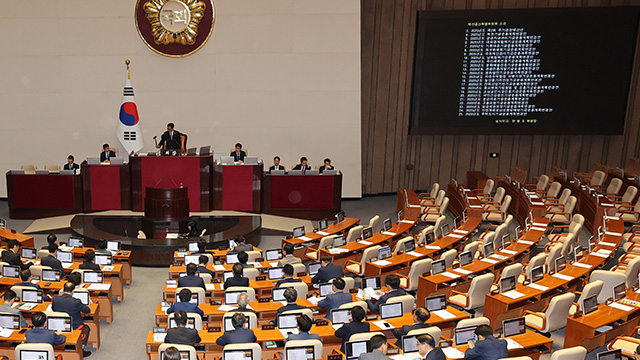
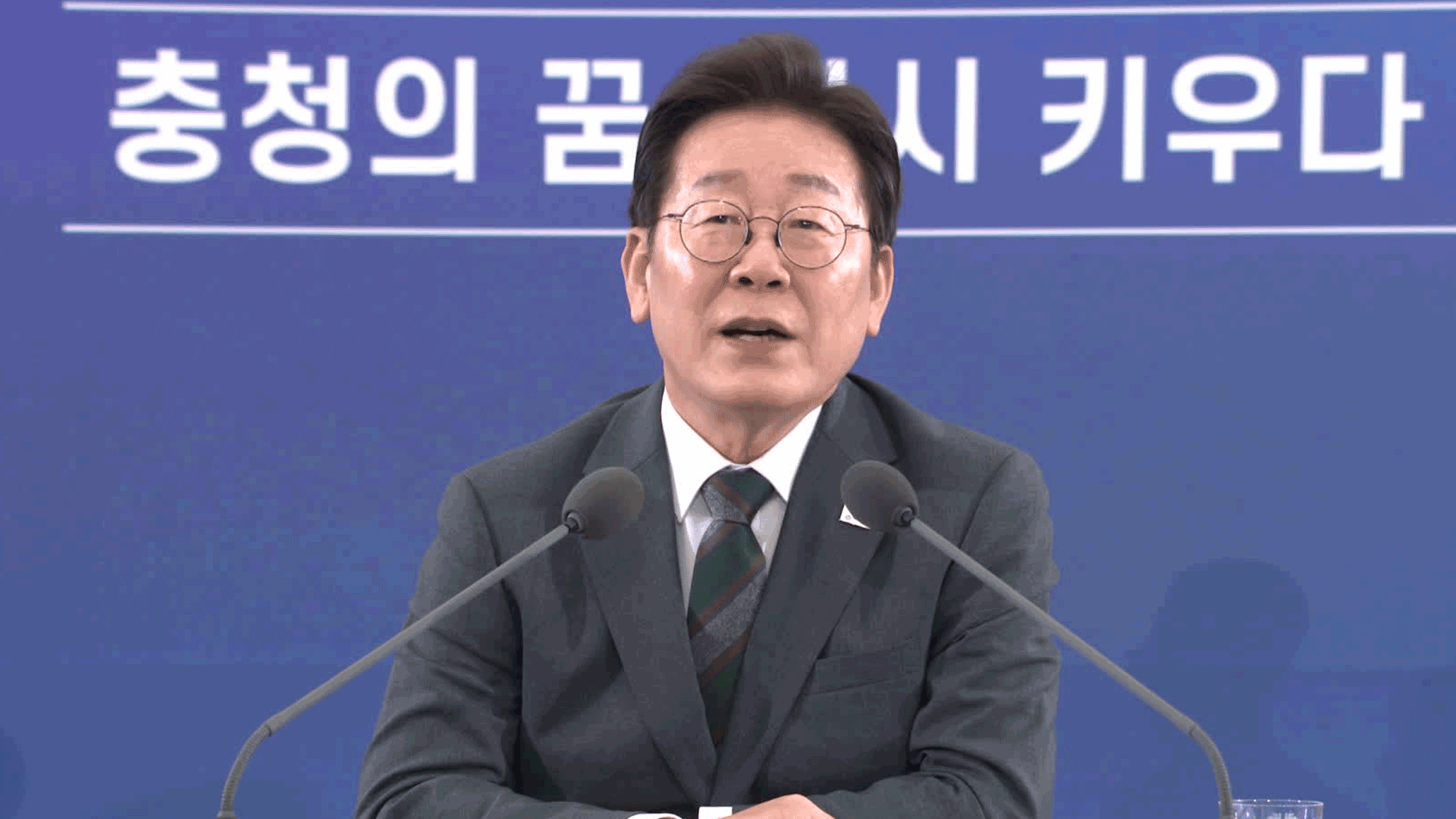
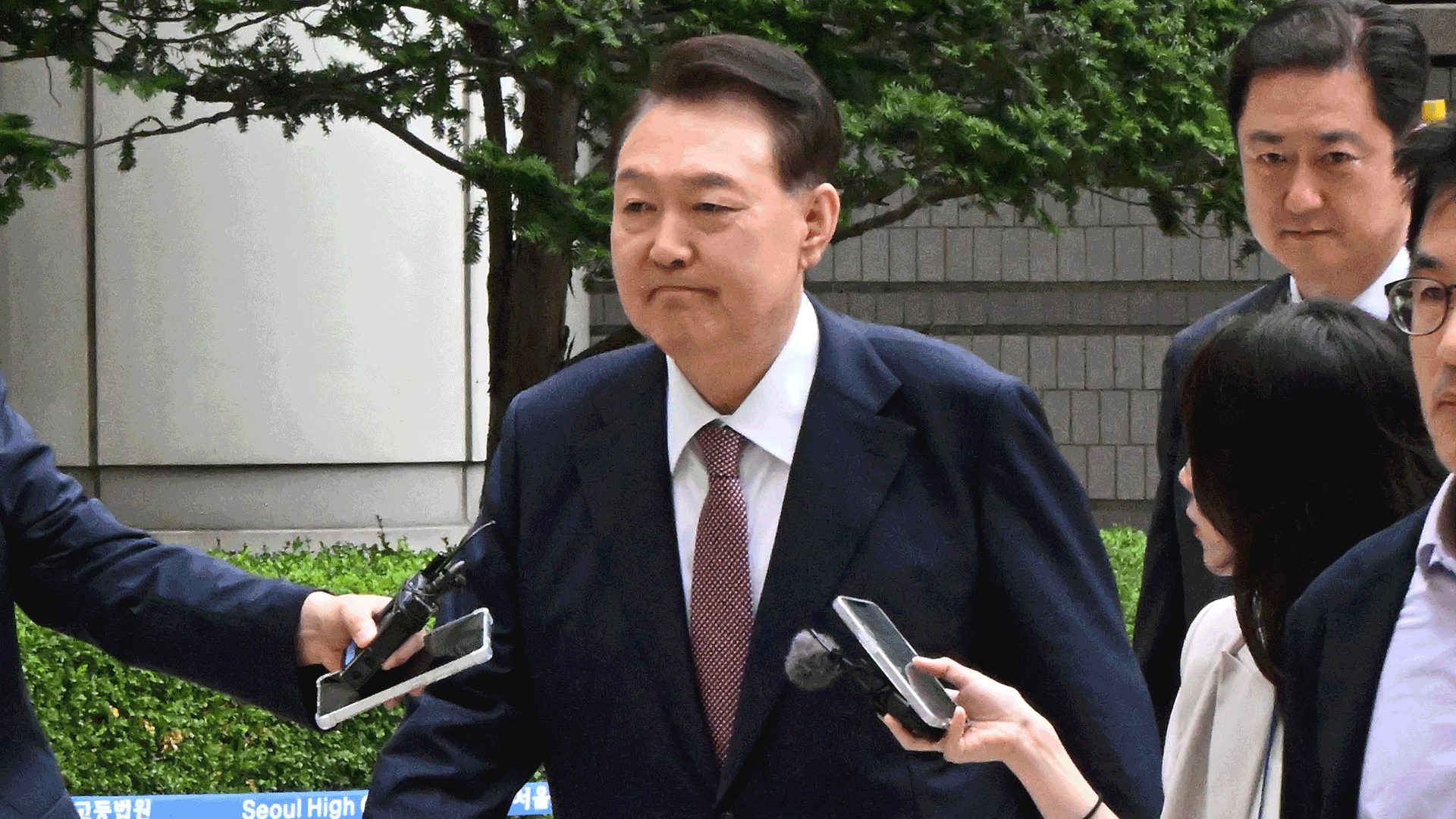
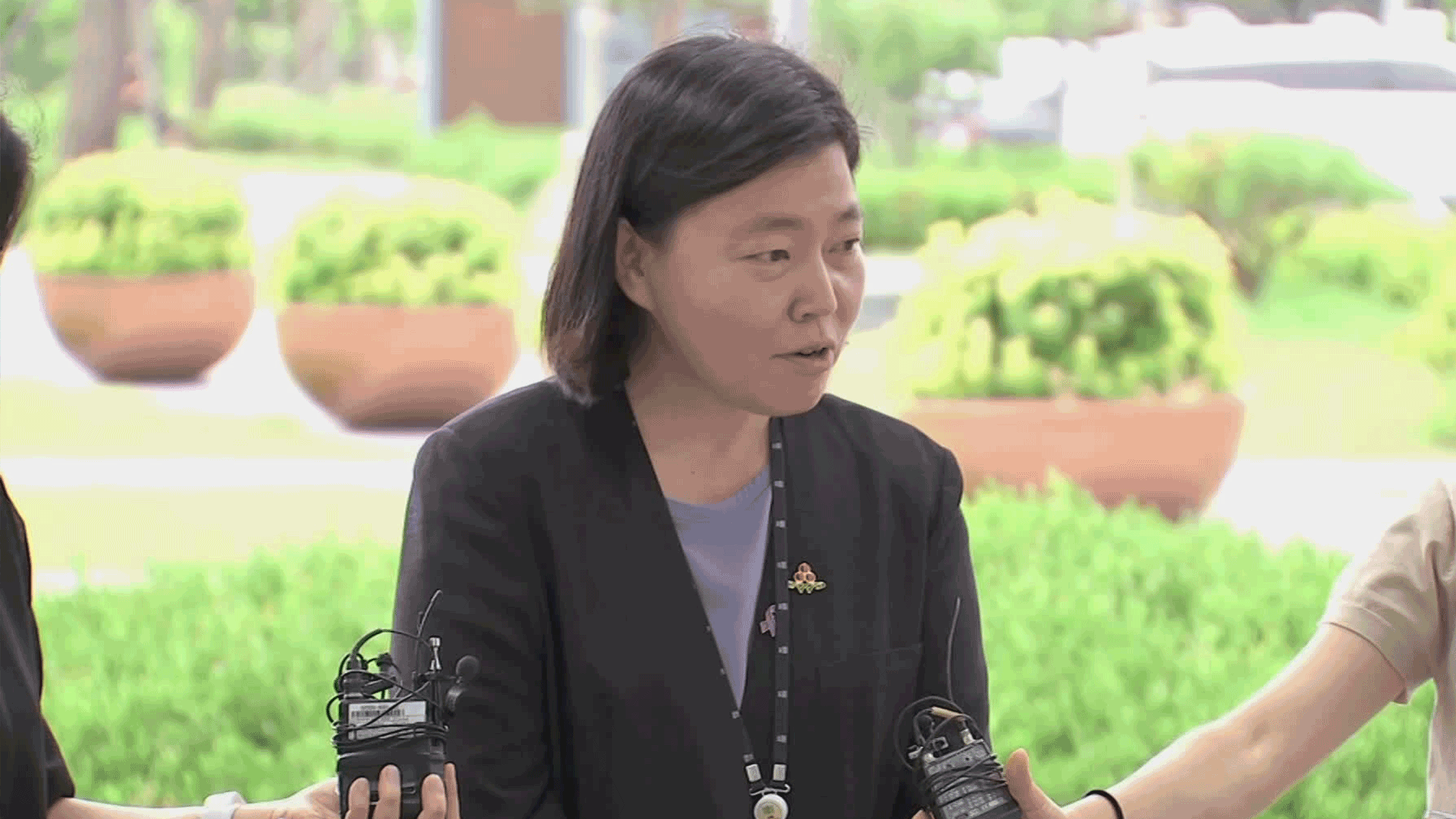

이 기사에 대한 의견을 남겨주세요.